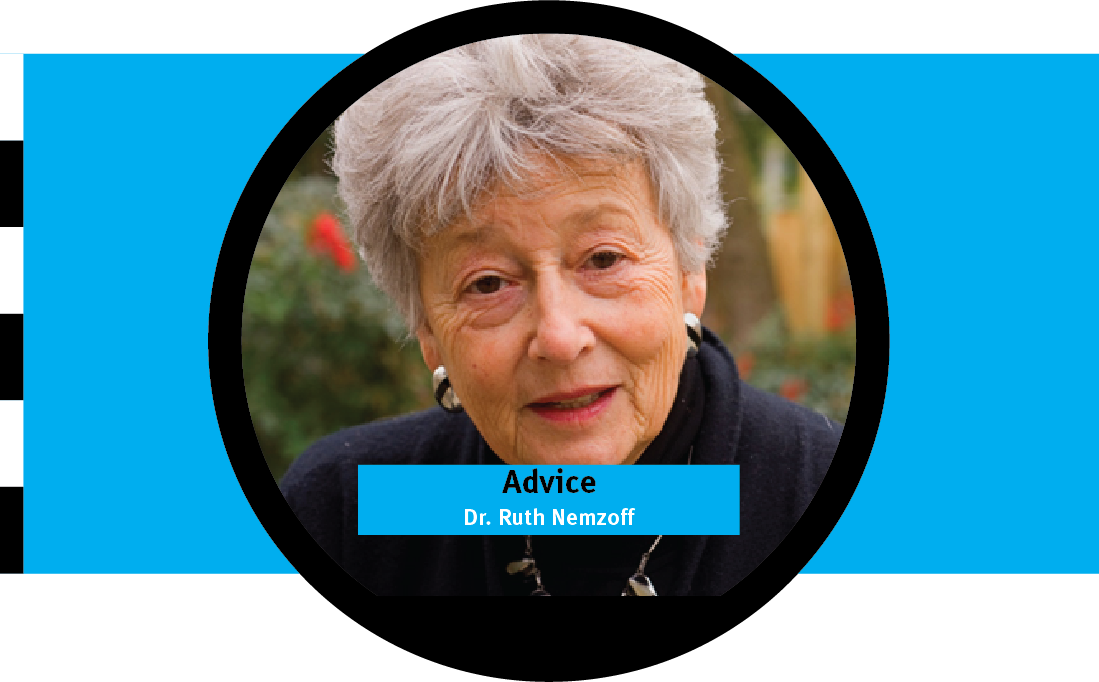Q: I’m not an observant Jew, but I recently went to my nephew’s Bar Mitzvah ceremony and was moved at how much attention was paid to respecting older generations and the chain of Jewish learning at the ceremony. September 8, 2024 is Grandparent’s Day, and I notice that none of my Jewish friends nor I think of this day as having any religious connection, and I am wondering, why? It seems so harmonious with Jewish ideas I’ve observed.
A: It may come as a surprise to some that many grandparents are older than grandparents day. On August 23, 1978, President Jimmy Carter signed a proclamation declaring the first Sunday after Labor Day to be Grandparent’s Day. He declared the purpose of the day as follows: to honor grandparents, to give grandparents an opportunity to show love for their grandchildren, and to help children become aware of strength, information, and guidance older people can offer.
It is interesting that all of President Carter’s reasons for honoring grandparents have parallels with important Jewish values. The first reason, honoring those who came before us, is written everywhere in the Torah, from the commandment to “honor thy mother and father” to Leviticus 19:32: “You shall rise before the aged and show deference to the old.”
The second reason was for grandchildren to show love to their grandparents. Showing love is a part of many Jewish values, from keeping peace in the home (shalom bayit) to Leviticus 19:18, which tells us to love one another as we love ourselves. Rabbi Akiva famously said that this single commandment was the most important law in the entire Torah (Bereshit Rabbah 24:7).
Finally, President Carter highlighted the gifts the elderly can give children, like wisdom, guidance, and mentorship. The word choice here is important. President Carter speaks to all the aged, not just grandparents. All older members of our community have gifts they can provide to the younger generations, regardless of familial ties. At many Jewish life cycle events, we position those older than us as figures in passing on knowledge. We even have a term for this, L’dor v’dor, from generation to generation. The Shema and V’ahavta, the daily prayer that many Jews say, commands us to diligently teach Jewish laws and values to future generations.
You are right, however, that for all the focus we place on older generations, we Jews don’t have a special holiday to honor them. However, we do honor grandparents at life cycle events. At a brit milah (circumcision), the grandfather is frequently given the honor of being the sandek, or person who holds the baby during circumcision. At Bar and Bat Mitzvahs, the grandparents, if they are able, often ceremonially pass the Torah to the next generation. Some are also called for aliyot (blessings over the Torah reading) or to read from the Torah or Haftarah. At weddings, grandparents are often invited to stand under the chuppa (wedding canopy), and some have adopted the tradition of seating grandparents in the first row.
By some traditional customs, the bride and groom are considered already married after they sign the ketubah (wedding contract) before the public wedding ceremony. For this reason, the bride and groom are not the ones being paid the highest respect at the ceremony. Instead, some Jewish scholars say, when G-d comes down to grace the ceremony with his presence, he is also joined by the spirits of the deceased grandparents and great-grandparents of both the bride and groom. It is for this reason that guests are paying the highest consideration at the ceremony, to honor G-d and the generations that came before.
Even at the end of life, we have customs to honor our grandparents. While, traditionally, one does not observe the traditional year long mourning period for a grandparent, some Jews choose to, and it is also encouraged to observe yahrzeit (the anniversary of the death of a loved one) or to attend Yizkor memorial services at a local synagogue.
Built into Jewish practice is the honoring of grandparents. However, not all Jews are affiliated or practicing. In fact, 36% of Jews describe themselves as “Jews of no religion,” and even more may have questions or misgivings about adopting certain Jewish traditions and customs that they aren’t familiar with. For this reason, it might be a good idea to give them a chance to practice their Judaism in a secular way. Celebrating Grandparent’s day is a way to mark time to honor grandparents in a way consistent with Jewish values. Even observant Jews might be tempted to add into their calendar a day with so many values analogous to Jewish ones. Of course, grandparents will be thrilled to have you remember them both religiously and/or secularly.
Come to think of it, many Jews are perfectly happy to celebrate Halloween. We indulge our children the day to fill their bellies with candy, maybe we should indulge their grandparents with a special day to fill their lives with their children and grandchildren.
The story of grandparents day is an example of someone connecting values with celebrations. The force behind the proclamation to declare a grandparent holiday was the tenacity of an elderly rights activist, Mariam Mcquade. She lobbied her senator to honor grandparents. He suggested she would have better luck if some states adopted similar proclamations, Over a three year campaign, 43 governors agreed to institute this holiday. If nothing else, it is nice to take a moment to appreciate, in our contentious times, a past in which 43 states could agree on something.
Whether you choose to adopt a “Jewish Grandparents Day” or not, recognizing the connection between Jewish values and celebrating those who have lived many years can help you connect with your neighbors and communities, Jewish, or otherwise.


